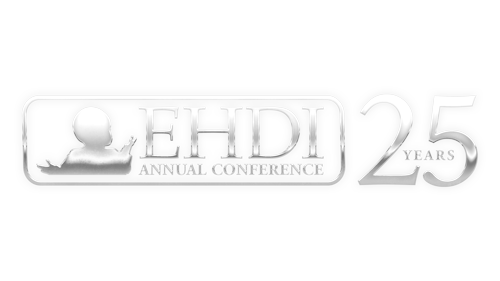2026 Early Hearing Detection & Intervention Conference
March 15-17, 2026 • Jacksonville, FL
3/14/2022 | 10:05 AM - 10:30 AM | Cochlear implant candidacy in children: 2022 Update | Room 3
Cochlear implant candidacy in children: 2022 Update
In the 30 years since cochlear implants (CIs) were first approved by the FDA for use in children, we have witnessed extraordinary changes. These changes have included: lowering of the recommended age of use in a child born deaf, extensive adoption by children who experienced progressive or late acquired hearing loss, and CI utilization by children of all ages with single-sided deafness or asymmetric hearing loss. With the initiation of newborn hearing screening, use of CI in very young children and the attendant benefits in outcomes has ballooned. The technology has also improved, positively impacting outcomes in recipients of all ages, allowing use of MRI in modern implants, providing smaller and more flexible sound processors that facilitate connections to technologies like Bluetooth, and facilitating compatibility with hearing aids in the contralateral ear when appropriate. Children with cochlear implants are now routinely implanted under one year of age. Children with more residual hearing may be implanted later. Secondary disabilities are not a contraindication for CI in children and provide important benefits for children with a range of other disabilities including blindness, autism, and CP. With parent-centered therapeutic approaches being utilized widely in concert with CI provision, there is an expanded opportunity for children to develop language on a par with their typically hearing peers.
Our presentation will provide an update on what has changed in recommendations for fitting CIs along the pediatric lifespan (from nine months to older children) as well as therapeutic and other options families may implement to maximize outcomes with a CI. Off-label considerations for cochlear implant candidacy in children will be suggested. This talk will make no recommendations on use or non-use of sign language but rather will focus on best practices in determining candidacy for children with a range of hearing characteristics.
- Recognize three primary determinants of pediatric cochlear implant candidacy
- Evaluate multi-disciplinary input used to determine pediatric cochlear implant candidacy
- Identify five off-label considerations for cochlear implant candidacy in children.
Presentation:
This presentation has not yet been uploaded.
Handouts:
Handout is not Available
Transcripts:
CART transcripts are NOT YET available, but will be posted shortly after the conference
Presenters/Authors
Donna Sorkin
(Primary Presenter), American Cochlear Implant Alliance, dsorkin@acialliance.org;
2. Donna Sorkin is the executive director of the American Cochlear Implant Alliance, an organization whose mission is to advance access to the gift of hearing provided by cochlear implantation through research, advocacy and awareness. Prior to joining ACI Alliance, she was vice president for consumer affairs at Cochlear Americas, and also previously served as the executive director of the Hearing Loss Association of America and the AG Bell Association for the Deaf and Hard of Hearing. She experienced progressive hearing loss as an adult and has has been hearing with a cochlear implant for 30 years.
ASHA DISCLOSURE:
Financial -
Nonfinancial -
AAA DISCLOSURE:
Financial -
Nonfinancial -
